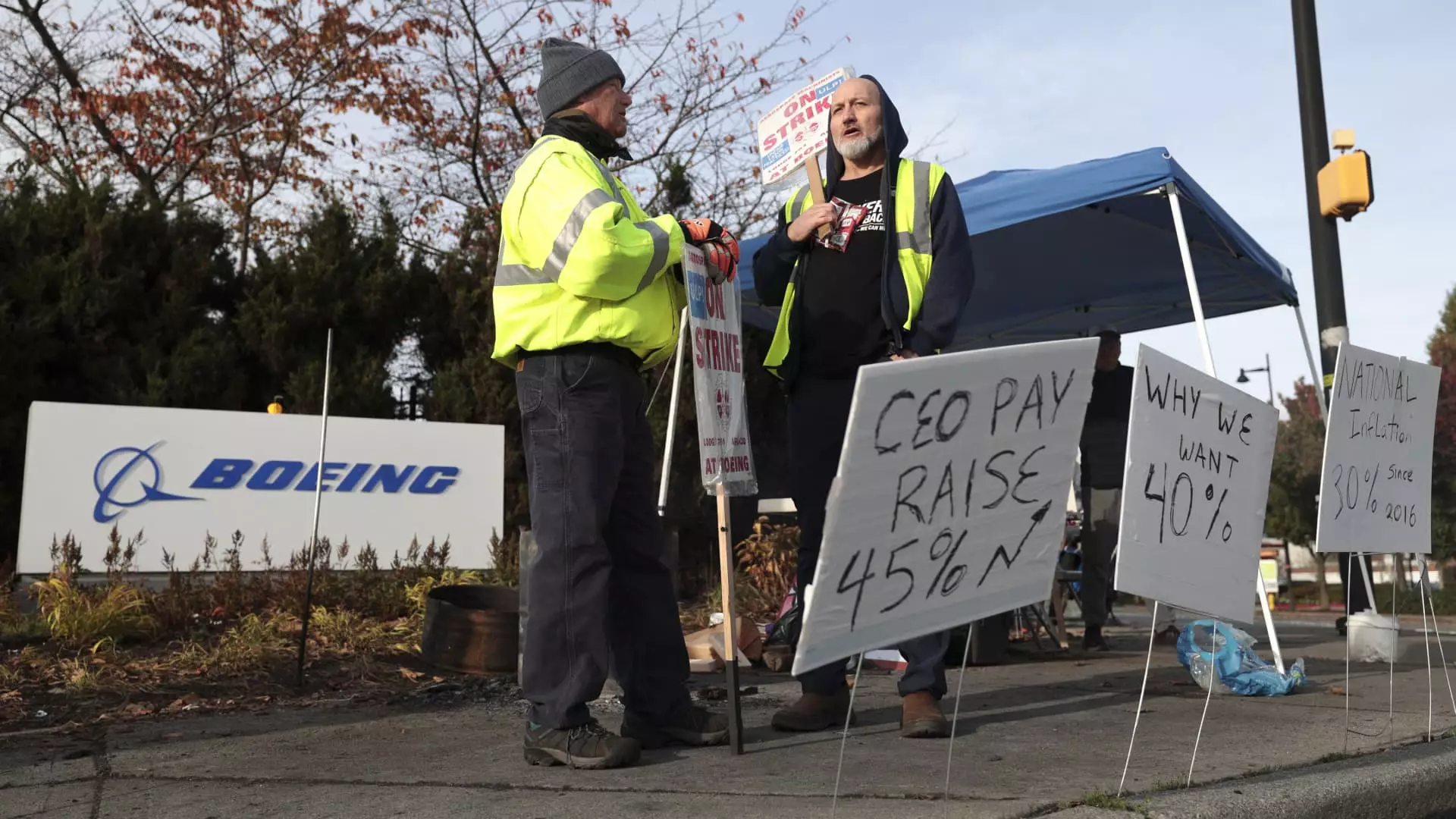Boeing’s machinists are poised to cast their votes on a firm contract proposal that could potentially conclude a protest lasting over seven weeks. This ballot marks the third time mechanics will weigh in on an agreement, having previously dismissed offers that failed to meet their fiscal necessities amidst rising living costs in the Seattle region. A simple majority is required to ratify the new proposal, which promises a significant wage increase of 38% over the next four years. This increase is an improvement upon the 35% raise that was initially tabled and subsequently rejected by the workers.
The workforce at Boeing has expressed growing frustration over the rapidly escalating cost of living, particularly in Seattle, where the company’s primary manufacturing facilities are located. This dissatisfaction stems from not only inflation but also the perceived inadequacy of past wage proposals. The union initially demanded an increase closer to 40%, highlighting the gap between worker aspirations and company offerings. Boeing’s latest response, which estimates an average annual salary of $119,309 at contract completion, is an attempt to alleviate these concerns, but it does little to quiet the anxiety surrounding economic stability in the region.
The ongoing strike reflects a deeper struggle within labor dynamics, wherein the International Association of Machinists and Aerospace Workers District 751 articulated that negotiations have reached a crucial juncture. They emphasize that, in their experience, there comes a time when all bargaining power has been maximized, and any further negotiations pose a risk of diminishing returns. The implications of this strike stretch beyond immediate pay increases; it speaks to the broader labor movement’s fight for fair compensation and safe working conditions, challenging corporations to prioritize their employees without compromising financial stability.
Following the company’s recent upheaval in leadership with CEO Kelly Ortberg stepping in, there exists an urgent need for reconciliation and revitalization of Boeing’s operational capacity. Ortberg’s appeal to workers conveys an awareness of the impacts that labor disputes have on all stakeholders involved—employees, customers, and suppliers alike. His message of unity and rebuilding the business underscores the precarious position of Boeing, especially considering the company has already raised over $20 billion to stabilize finances amid persistent operational challenges.
As the machinists prepare to vote, they are faced with a decision reflecting their immediate needs while considering long-term implications. The union encourages members to endorse the deal as a way of solidifying recent gains and fostering an environment conducive to future negotiations. The stakes are high, and while there lies an opportunity to secure essential pay increases, the outcome of this vote will greatly influence Boeing’s trajectory and the livelihood of its workers in the years to come. This impasse encapsulates a microcosm of the ongoing conflict between labor forces and corporate entities, stressing the necessity for mutual understanding and sustainable practices in a rapidly changing economic landscape.


Leave a Reply